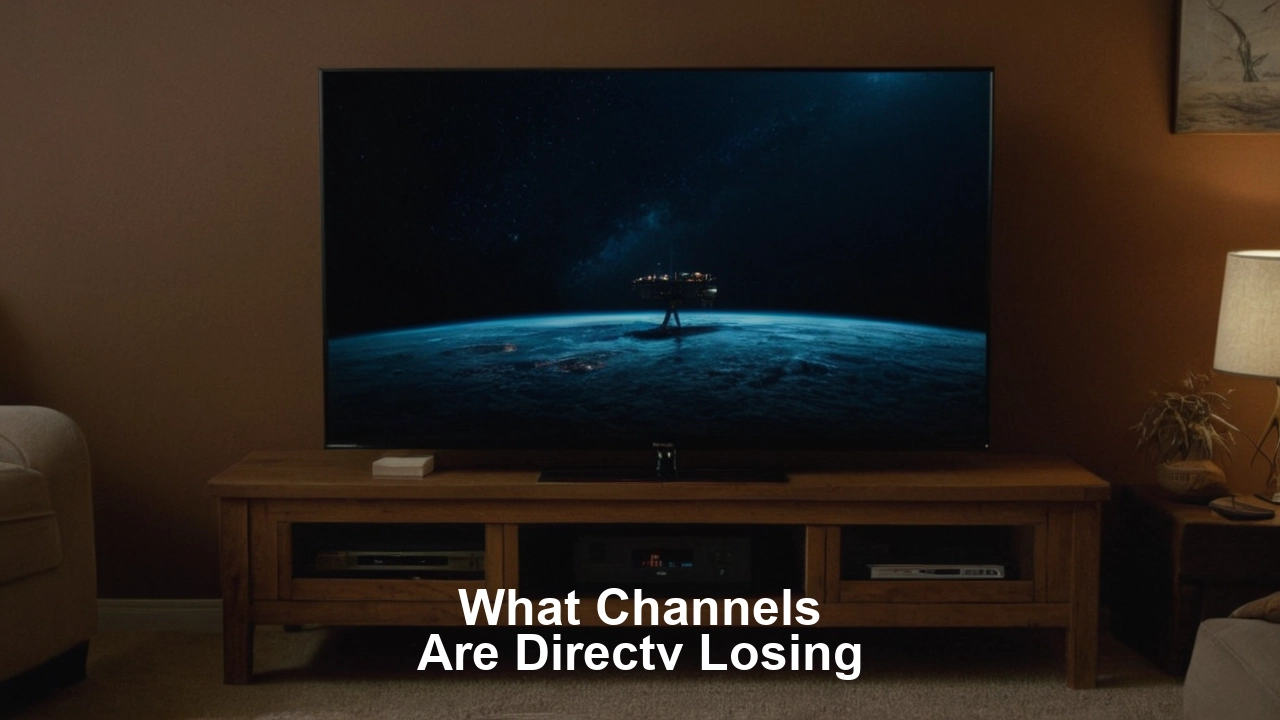What channels are DIRECTV losing?
The satellite broadcasting company DirecTV is dropping several popular channels because it has been unable to come to an agreement with media providers. With the trends of cord-cutting and decline in subscriptions to traditional pay-TV services, providers such as DirecTV are seeking to reduce the costs by challenging the carriage fee demands. However, this has culminated in stalemates that cause channel blackouts.
DirecTV has not had many big losses in recent years, but one of the major losses was The Weather Channel in January 2019. The Weather Channel demanded an increase from 13 cents to 16 cents per subscriber per month. Since The Weather Channel is viewed in over 90 million homes, this would translate to an increase that would be millions more per year to providers like DirecTV. DirecTV considered this too expensive since they can get weather updates through the internet and mobile applications. The blackout lasted for about three months before a new deal was agreed on.
Another recent departure was the group of Fox-branded regional sports networks. When Disney bought 21st Century Fox, they had to divest the regional sports networks as a condition of the acquisition. Sinclair Broadcasting acquired them but never had carriage deals with many pay-TV operators, such as DirecTV. This has deprived fans of local baseball, basketball, and hockey teams the ability to view games on these regional Fox Sports networks if they reside in these areas.
The two companies also pulled out NBCUniversal’s cable networks, such as USA Network, Bravo, and MSNBC, among others, from their packages in 2020 due to a disagreement on fees for the carriage of these channels. Over eight million subscribers did not have access. This blackout stood at about two months before a new carriage deal was established. But new conflicts still appear when it is time to renew contracts again.
Another recent conflict has been between DirecTV and Tegna, which owns 64 stations in 51 broadcast markets across the United States. These local broadcast stations have gotten more demanding in their negotiations because their local and NFL games have turned into ‘basic’ programming for pay-TV providers. Stations seek more money from operators, while the latter seek to keep charges low in an environment where viewers have many options on how to get content online. This Tegna disagreement led to blackouts in December 2021 and another in October 2022 in areas such as Seattle, Denver, Minneapolis, and Cleveland, among others.
Regional sports networks could also see more blackouts in the near future as well. Not only is there an ongoing conflict with regard to the former Fox RSNs, but DirecTV subscribers are at risk of losing access to SportsNet LA, which broadcasts LA Dodgers’ games and is owned by AT&T/Warner Brothers. Although AT&T sold DirecTV, it still has SportsNet LA through its partnership with Warner Brothers Discovery. These contracts are likely to be renewed within the near future. Due to the constantly rising costs of sports programming and the tendency towards media consolidation, the likelihood of an impasse appears notable. Some spectators might be unable to catch some important games of the baseball season.
Another existing contract disagreement is between DirecTV and Mission Broadcasting, which owns local broadcast stations in 24 markets under the Nexstar Media Group. Prior blackouts were in 2019 and then in 2021 for the exact reasons stated above: Mission wants major hikes in carriage fees since they air popular local news and NFL games, while DirecTV seeks to keep costs down. This current disagreement might lead to further local station blackouts for the subscribers where the agreement has not been reached.
Besides these current active disputes, which if escalated could lead to channels going dark for DirecTV subscribers, important losses have occurred in the last couple of years in terms of channel offerings and choice for the consumers.
For instance, channels such as Comedy Central, MTV, and Nickelodeon were blacked out by Viacom and removed from DirecTV in 2019. The blackout persisted for approximately three months before the distribution agreement was resumed. It is probably not a coincidence that this particular genre of entertainment content was unavailable online for some time and cord-cutting was on the rise among young people. Even today, Viacom seems disinclined to license their channels to new streamers on favorable terms due to disagreements with distributors in the past few years.
Some of the other channel losses that have affected variety are A+E Network’s History Channel, which is 19, Lifetime Movie Network, Starz, Audience Network, Fusion, Esquire Network, and Longhorn Network. And you can recall that back in 2010, DirecTV was blacked out of Fox networks for over a month over retransmission fees. Fox, to this date, appears somewhat averse to offering its channels for streaming to new players on unfavorable conditions after the controversies with distributors in the past years.
But nobody likes to lose access to the content they like, and sadly, blackouts have become the norm thanks to how the traditional pay-TV industry was set up in terms of its economics. Over the decades, media consolidation through mergers means that the large programmer has the bargaining power to keep demanding higher fees. But with consumers opting for cheaper streaming options by ‘cutting the cord’, this model has become unviable. Until a new equilibrium is established, subscribers will most probably keep on experiencing the nuisance of some channel losses.


